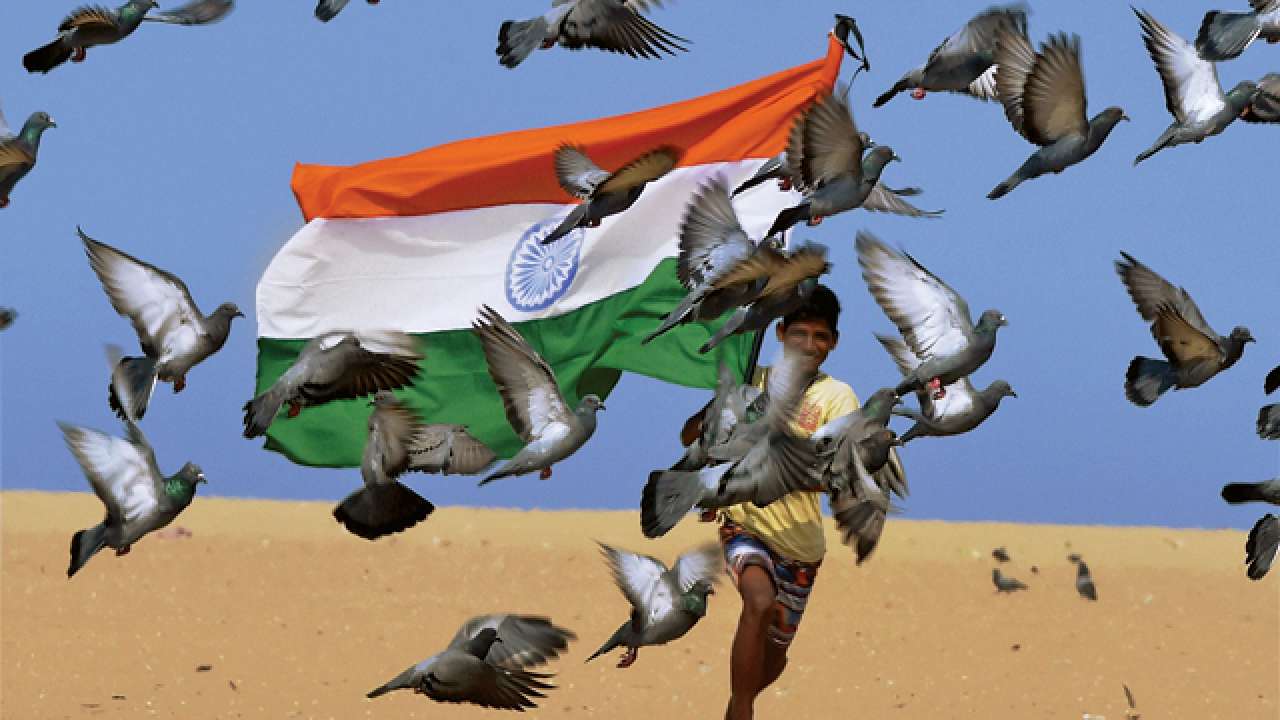
The Indian heart swells with pride with memories of this day 70 years back, when India pioneered the move towards independence of a hundred developing countries. This day, we remember the great sacrifices of our freedom fighters. India was a unique community in the world, with common cultural and historical heritage, from the days of the Vedas, the Ramayana and Mahabharata, and latter of Shankarcharaya who, nearly a thousand years ago, travelled every part of this country unifying this sub-continent. Vallabhbhai Patel integrated hundreds of large and small kingdoms, to form the India that we see with pride today. It was a monumental achievement to consolidate and lay the first steps for creation of a great nation; a country of thousand languages, varied rich cultures and traditions was unified.
There is much to remember with pleasure in the past decades. One recalls the thundering speeches from the ramparts of Lal Quila, extolling the role of the kissan and the jawan, and celebrating the free citizen of India. This was also the time when India became a significant player in the space and atomic energy fields. Much of the credit should go to the founding fathers of the republic, and the first two decades of great foundation work.
Alas, there is not much good to say about the past five decades. This is the month of August, and on schedule — many parts of the country are reeling with floods; at least this year there was no general drought (perhaps excepting a couple of southern states) — exemplifying the complete lack of water management at ten different dimensions, symbolising the colossal misgovernance of the country. This is also the time of Japanese Encephalitis, which afflicts the Tarai region — this time with a double whammy of complete system failure; it is symptomatic of our mal-administration that this annual Gorakhpur event cannot be tackled with elementary precautions. Recall that a former Railway Minister in the ‘50s resigned his position, taking responsibility for what was possibly due to human failure of a local official — is it a tragic irony that his grandson, as the present Health Minister of Uttar Pradesh, finds every contradictory explanation every hour to explain the colossal Gorakhpur hospital mishap? Is this typical of the failure of accountability of the current political class?
We have also seen with distressing regularity a succession of ‘scams’, of increasing dimensions and ferocity, in every successive government in the past 50 years (the last three years are an exception). The public is now quite familiar with terms such as: ‘Need to fix responsibility’, ‘we demand accountability’, ‘where is the proof’, ‘law will take its own course’, ‘I am innocent, till proven guilty’ — all trite aphorisms, and forgotten within days; this is a country where the ‘trial’ of a Lalu will go on for four decades, no one being wiser if he is a grand crook or a benefactor of mankind; where a film actor produces a new driver every decade on a drunken driving murder charge, or where the Chinkara possibly commits suicide! While the judicial system can take pride in protecting ‘human rights’, at least in theory, it is equally true that the system is archaic, run generally for the benefit of the rich and the lawyer class, ‘denying justice through delay’.
The decades have also seen sharp deterioration in the quality of education and increasing exclusivity in the education process. Preventive health care is of fundamental importance — India has among the worst records of immunisation and anaemia in the world. It is astonishing that a democracy, meant for the citizen, has overlooked these fundamental aspects of governance. A country which was endowed with great institutional strength and sound leadership at independence, instead of being a world leader after 70 years, is barely an ‘also-ran’.
There is now new hope in a new central administration, under a charismatic leader; even though the management of the states has sharply deteriorated. For the first time in 50 years, the common citizen has new expectations, that minimal standard of living for the poorest will be achieved in quick time; that the escalating rich-poor differential will reverse itself. The clarion call of the PM demanding a ‘Quit India’ call last week for corruption, poverty, casteism, communalism, among others is a landmark event –— far from the puerile ineffective cry for an abolition of ‘poverty’ by an earlier Prime Minister in ‘70s. This time, the country cannot afford to miss this genuine new bid to transform the nation. The nation cannot afford not to change dramatically within the next five Independence days — the consequences of failure cannot be imagined.
The author is a former cabinet secretary. Views expressed are personal.